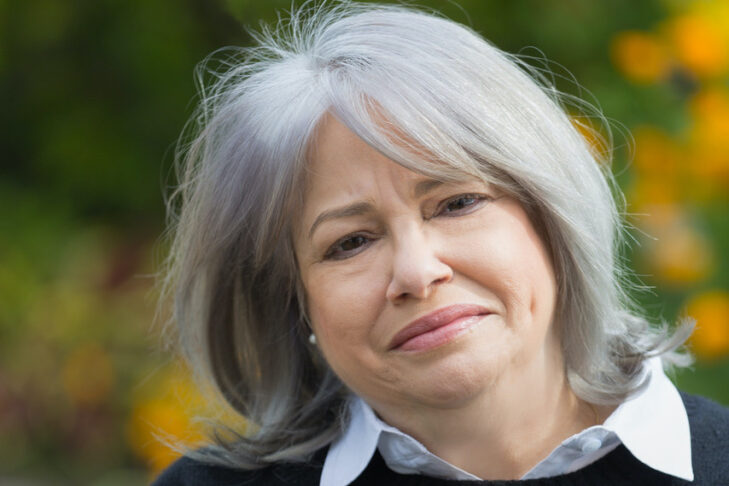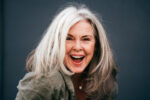There is a wonderful sisterhood ready to welcome me to my 60s—to usher me into a Shechecheyanu moment, that prayerful stopgap that launches “a season of joy” while acknowledging a new or unique experience. The older I am, the more urgent it is to perpetuate the rituals that have sustained me these 60 years. I feel the magnitude of all that has happened in my lifetime, and in 2020, which has felt like an entirely different kind of life. There are so many layers of loss to peel back from this year. As I write, more than 300,000 Americans have died from COVID-19, and that overwhelming number is climbing. I sit with fear and devastation. The grief is ongoing.
In the face of so much suffering, it can feel trivial to think about the sweet embellishments of life that we lost this year—holiday celebrations, spur-of-the-moment dinners out, movie popcorn, manicures. Then there is this: I won’t blow out candles on my birthday cake this year. It’s part of my new vigilance. But amid the vigilance, it is powerful, even necessary, to name the losses.
Related
At first, the relentless pace of life in this weird year seemed it would be tentatively paused, but then it came to an eerie standstill. Although I could not physically gather with most people, summer brought a much-welcomed loophole. I saw friends and family in my backyard, or I saw them through glass doors and windows that were picture-perfect frames. And there was always Zoom on which to fall back. Through it all, I felt such kinship. My love expanded. Before my mother’s nursing home went on lockdown for the second time, I saw her through a sheet of Plexiglas. We were masked and she was disoriented. But there was an opening at the bottom to hold hands.
Being with my family for a stretch of time was the most gleaming of pandemic silver linings. I was safe to take a breath to survey what was happening around me, to cope with the gravity of this latest rupture of history. I thought about questions I had been circling for years: How did I want to live going forward? What did I need to pare down? What ultimately fulfilled my soul? Those questions loomed even larger for me amidst rising body counts and the wake of George Floyd’s murder. Even as I said the Mourner’s Kaddish for Black lives and pandemic victims, I was self-conscious about my privilege and my complicity. On the precipice of 60, it was time to tend to a delicate ecosystem in which compassion and fierceness existed together.
How was I going to help? Like the book says, my participation had to happen “bird by bird.” The first thing I did was speak. In the noisiest, most contentious presidential election of my lifetime, I called voters in Ohio and Pennsylvania, reminding them that they could vote early or that they could vote on the day of the election. I had information at the ready about where to get a ballot and where to vote in person. Most people didn’t answer my call. Some were hostile on the other end. A good many were undecided; others were apathetic. Ask me questions, I begged the people who didn’t hang up on me.
I like a podcast called “On Being.” Krista Tippett is the very smart host and almost every week she reminds her listeners “to hold space for the questions.” It’s an idea based on Rainer Maria Rilke’s lines from “Letters to a Young Poet.” Ten months into the pandemic, on the eve of marking 60 revolutions around the sun, I want to share them; I want to make them my manifesto:
“I want to beg you, as much as I can, dear sir, to be patient toward all that is unsolved in your heart and to try to love the questions themselves like locked rooms and like books that are written in a very foreign tongue. Do not now seek the answers, which cannot be given you because you would not be able to live them. And the point is, to live everything. Live the questions now. Perhaps you will then gradually, without noticing it, live along some distant day into the answer.”
It is vital to not only stay with the questions, but to immerse in them. Think long and hard about what makes us despair. What enables us to find hope? And the hardest question of all: What does it mean to be human? There is no right answer. Forge ahead and keep naming the losses; it is the greatest memorial to this time. Read the death notices—say the names out loud. The season of joy is now the season of resilience. I didn’t intend to be retrospective. Nurturing the questions is the work of a lifetime. And, in the end, it is the beginning of how to live going forward.




